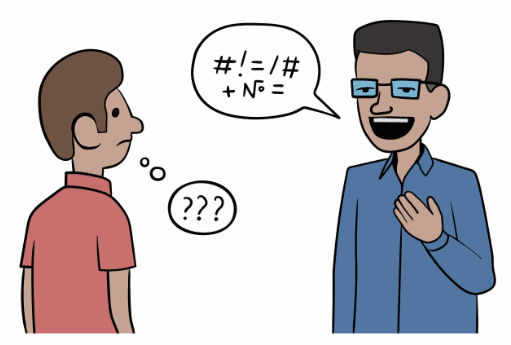Has this ever happened to you?
You’re telling someone that you’re able to do something, for example “I can see you tonight”. And then the person replies “You CAN or you CAN’T?”. WHY DOES THIS HAPPEN???
 Here’s why: In American English, the helping (auxiliary) word “can” should not rhyme with “man”.
Here’s why: In American English, the helping (auxiliary) word “can” should not rhyme with “man”.
It should sound more like a very fast “kin”.
The vowel, in fact, is practically obliterated. This is true for conversational speech, at a regular speed, in the beginnings or middles of sentences:
“I can see it.” (I-kin SEE it.)
“Can you call me?” (kin-you CALL me?)
The rhythm of the phrase “can see” is described as “iambic”: weak-strong.
The stress lands on the things you can do, in this case, “see”.
“Can’t”, on the other hand, is fully pronounced and has a decent bit of stress on it, just a tad less than the verb that follows.
“I can’t hear you” (I CAN’T HEAR-you). The phrase “can’t hear” is an example of “spondee” meter: strong-strong.
It’s interesting that we stress “can’t” (the negative) but not “can” (the positive).
It’s like, by default, in American English the assumption is that things are possible! And if they’re not, we have to make it very clear. This is a nice thing.
Try out some can-can’t contrasts now:
“I can ride a bike but I can’t ride a motorcycle”. “I can speak to my cat but my cat can’t speak back”. “I can forgive but I can’t forget”. And now make up some of your own.
If you practice this, from this day forward, you can rest assured that you can forevermore avoid the question “You Can or You Can’t?”. I can tell.
Learn more about 1:1 accent reduction training.
When you are ready to speak more clearly, contact us for a discovery call and assessment.

